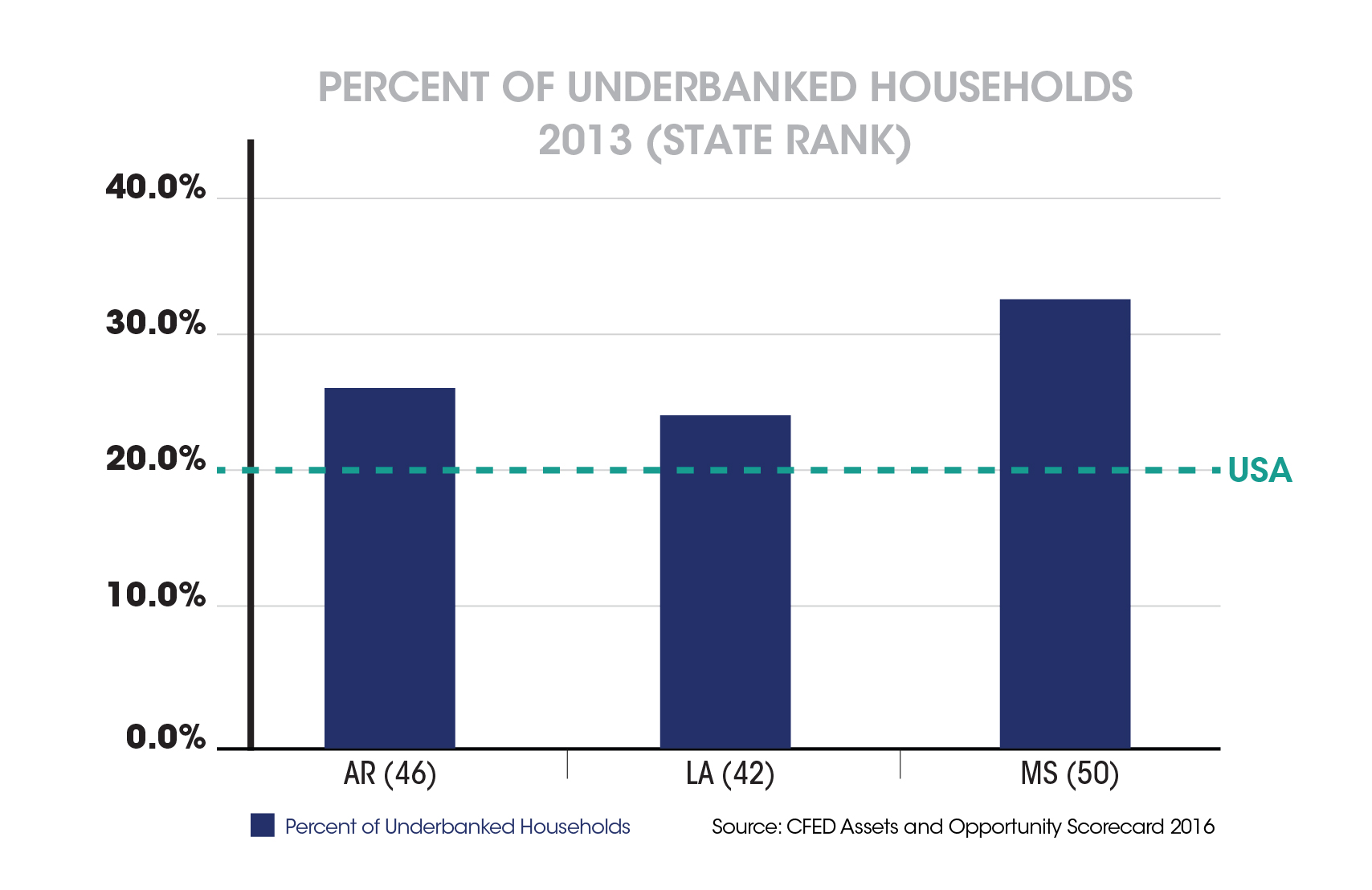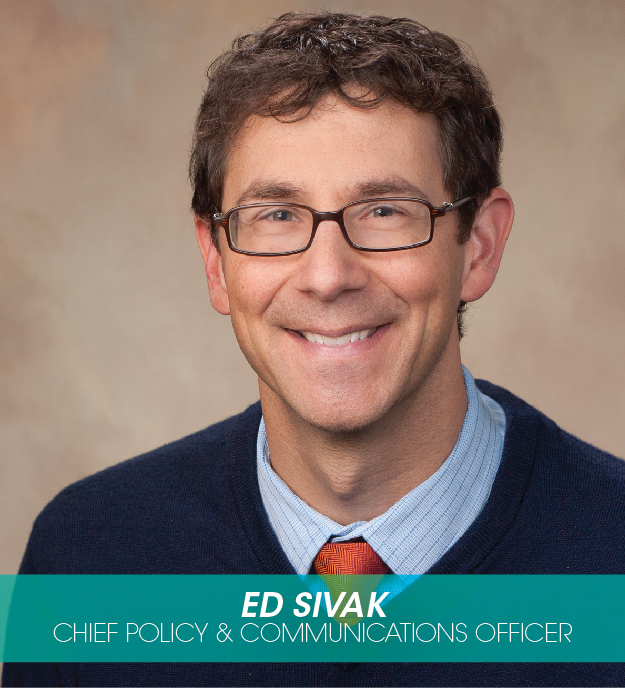High-cost lending severely impacts Mid South states
January 29th, 2016
Over the last few days, CFED’s 2016 Assets and Opportunity Scorecard release shined a light on issues of credit and predatory lending. Perhaps nowhere else in the country is the issue of predatory lending – particularly small dollar predatory lending – more prevalent than in the Mid South. The percent of households that use a high-cost lender is higher here than anywhere else in the country (see chart).
Even more disturbing than the distinction of last place, is the glaring disparities that exist in the rate of high-cost lending by race. In Mississippi, four out of 10 black households are underbanked. While the households have a bank account, the households also use a high-cost lender or financial service. The rate for black households is 11 percentage points higher than the rate for whites. A similar gap of 9 percentage points exists in Louisiana.
Far too often, members of underbanked households find themselves the victims of predatory lending. As HOPE shared in testimony before the Mississippi House Banking Committee, one HOPE member found herself in a situation where she had eight payday loans outstanding all at one time for amounts exceeding her monthly income. Unfortunately, state law does not prohibit such practices.
The experience of HOPE members with predatory lenders underscores two important points. First, the Consumer Finance Protection Bureau’s (CFPB) work to curb predatory lending – particularly among small dollar and short term loans is critical. Nowhere else in the country are the forthcoming rules governing small dollar loans as critical as in the Mid South where few state-level protections exist. Second, the work of HOPE plays an important role in providing alternatives to high-cost loans and pathways out of the debt traps created by them. The mission and approach of HOPE serve as an important reminder of the impact of investing in a financial institution dedicated to building the wealth of its members to create opportunities that span generations.







